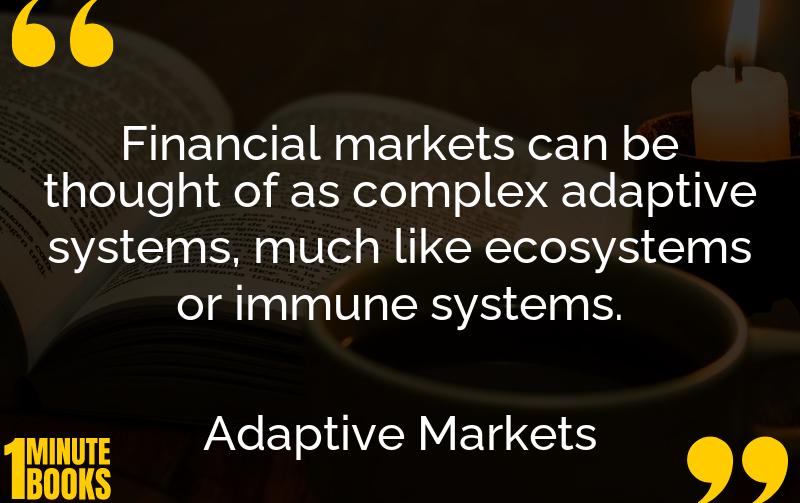
Adaptive Markets examines financial markets through the lens of evolution and human behavior, challenging traditional views on market efficiency. It presents the adaptive markets hypothesis as a more nuanced understanding.
Main Lessons
- The efficient market hypothesis doesn’t fully account for human behavior affecting market outcomes.
- Financial markets evolve and adapt, similar to biological systems.
- The adaptive markets hypothesis offers a better model for understanding financial markets.
- Cognitive biases and emotional responses significantly influence investment decisions.
- Financial innovation can introduce both opportunities and risks, necessitating adaptive strategies.
- Regulators should focus on systemic risk and transparency over micromanagement.
- High-frequency trading exemplifies the concept of adaptive markets.
- Awareness of cognitive biases can improve investment strategies.
- The 2008 financial crisis highlights the complexity of financial systems and the influences of various factors.
- Regulatory frameworks need to evolve with the pace of financial innovation.
- There are parallels between financial systems and ecosystems or immune systems.
- Evolutionary biology principles can be applied to understand financial markets.








